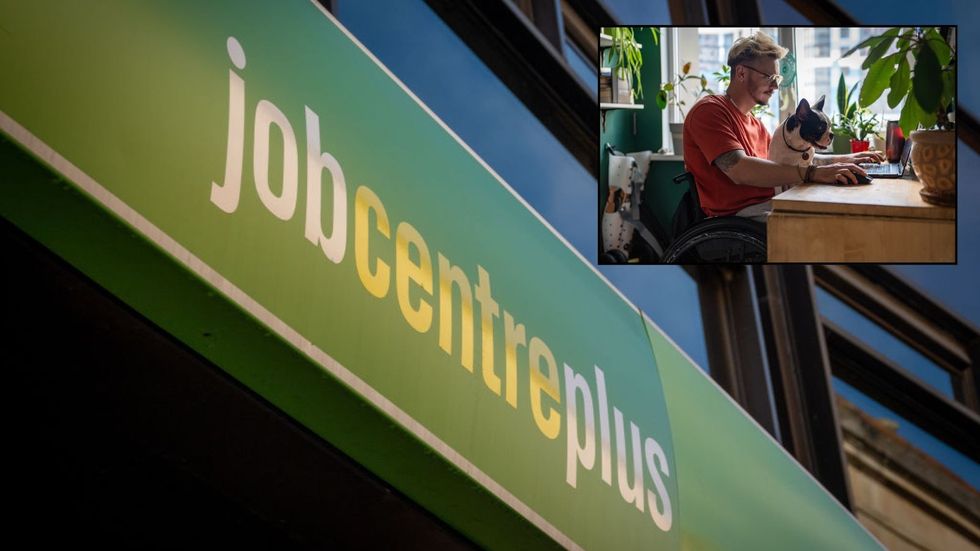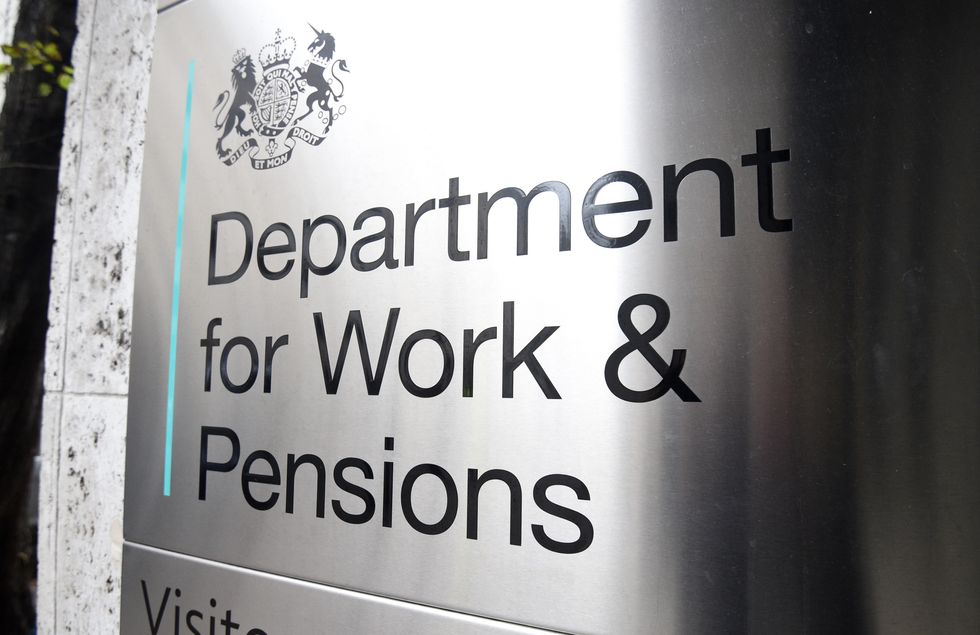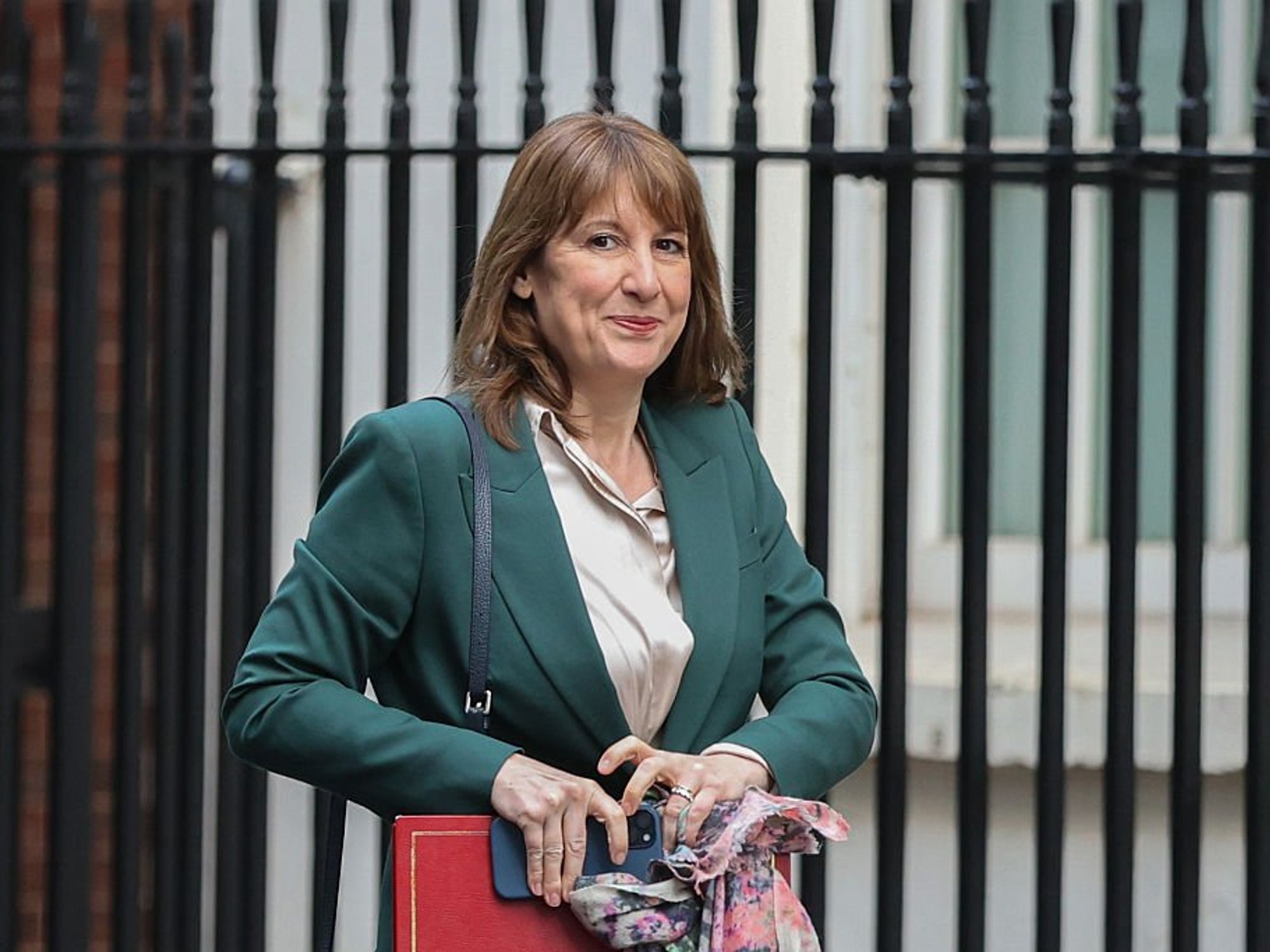DWP confirms thousands of sick and disabled people to get 'life-changing' support after PIP cuts

GB News

Labour has came under fire over its reforms to the DWP disability benefits
Don't Miss
Most Read
Latest
The Department for Work and Pensions (DWP) has unveiled a £338million investment to expand the Connect to Work scheme, offering specialised employment assistance to more than 85,000 people across 15 English regions
This comes after Labour's controversial welfare cuts, which reduced disability allowances including Personal Independence Payment (PIP).
The move sparked anger amongst campaigners, who warned that vulnerable households were being at best being left behind; and at worst, specifically targeted.
The new scheme is part of a wider £3.8billion employment support package designed to tackle economic inactivity and improve living standards under the government's Plan for Change.

2.8 million people are unable to work due to illness.
|Getty
Officials say the programme will deliver tailored, local support, with participants receiving personalised coaching, job matching services and long-term help for both workers and employers.
Funding allocations reveal significant regional investments. Central London Forward will receive up to £71.9million to help 16,800 people, while Local London Sub-Regional Partnership will obtain £47.1million to support 12,350 residents.
South Yorkshire has been allocated £35.3million for nearly 10,000 participants across Sheffield, Rotherham, Barnsley and Doncaster. Greater Essex will receive £30.7million in an attempt to help 7,800 people into work.
The programme aims to reach 300,000 people across England and Wales over the next five years. Access will be available through self-referral or referrals from health professionals, local authorities and voluntary organisations.
Do you have a money story you’d like to share? Get in touch by emailing money@gbnews.uk.
Britain faces one of the highest levels of health-related unemployment in the G7, with 2.8 million people unable to work due to illness. More than a quarter of the unemployed now cite health problems as a barrier, compared with just 10 per cent in 2012.
The Government says Connect to Work will offer comprehensive support through personalised coaching, tailored job matching and continuous assistance for both participants and employers.
Work and Pensions Secretary Liz Kendall said: "For too long, millions of people have been denied the support they need to get back to health and back to work. It's bad for their living standards, it's bad for their families, and it's bad for the economy."
She added: "That's why we're taking decisive action by investing millions of pounds so sick or disabled people can overcome the barriers they face and move out of poverty and into good, secure jobs as part of our Plan for Change."
LATEST DEVELOPMENTS:
Supporters argue that the scheme contrasts sharply with Labour’s welfare policies, which scaled back disability payments. They say this new approach is designed to restore dignity, pride and independence to people left behind by the cuts.
South Yorkshire’s Mayor Oliver Coppard welcomed the investment. He said: "I want South Yorkshire to be a place where we all thrive. Where poor health doesn't hold us back.
"And work plays a huge part. It's not just about wages — it's about dignity, pride, and the security that comes from knowing you can support yourself and your family."
He pointed out that more than 140,000 people in South Yorkshire remain unemployed.
 PIP comprises two elements that address different aspects of disability support | PA
PIP comprises two elements that address different aspects of disability support | PAHe said the Connect to Work scheme builds on the region's Pathways to Work project, making it a national model for tackling unemployment.
The programme has already shown results in West London, where £42.8million was allocated to support 10,800 people.
One participant, Awais Ashraf, shared his story. He said: "My health suffered with the loss of a family member, which led me into a period of depression and anxiety, and meant I lost my employment just under two years ago."
After referral from his Jobcentre Plus work coach, he received health advice, skills training and one-to-one coaching. He is now working as a teaching assistant and continues to receive support from an employment specialist.

More than half of the rise in working-age disability claims since the COVID pandemic relate to mental health or behavioural conditions, according to the Institute of Fiscal Studies
| GettyIn total, the cost to the economy of working age ill-health and disability that prevents employment in 2022 is estimated at between £240billion and £330billion, according to Official Government statistics.
A 2016 paper reported a range of £114billion to £149billion, meaning there has been an estimated increase of £126billion to £181billion over six years.
This data comes as Health Secretary Wes Streeting sounded the alarm of over-diagnosis of certain mental health conditions.
He told the BBC he wanted to "follow the evidence" and said: "I agree with that point about overdiagnosis. Mental wellbeing and illness is a spectrum and while there is definitely overdiagnosis, there are also too many people being written off."










